techlash
description: a term describing the public's negative reaction to and increased scrutiny of big tech companies
25 results

Internet for the People: The Fight for Our Digital Future
by
Ben Tarnoff
Published 13 Jun 2022
While some involved new revelations—as journalists and politicians began, for the first time, investigating online malls in earnest—others centered on normal industry practices that were hiding in plain sight. What was once business as usual now became the basis of Capitol Hill hearings. The “techlash” had arrived. As the years have passed, the techlash has persisted. Its imprint appears to be permanent. The spectacle of the tech industry behaving badly has become routine, even cliché—a spectacle ritually enacted in the periodic testimony of its executives before Congress. Meanwhile, polling suggests that public opinion has taken a turn: in 2019, only 50 percent of Americans said that tech companies have a positive effect on the United States, compared with 71 percent in 2015.
…
Kaplan’s interventions: Hao, “How Facebook Got Addicted to Spreading Misinformation”; Deepa Seetharaman, “Facebook’s Lonely Conservative Takes on a Power Position,” Wall Street Journal, December 23, 2018; Jeff Horwitz and Deepa Seetharaman, “Facebook Executives Shut Down Efforts to Make the Site Less Divisive,” Wall Street Journal, May 26, 2020. 9. Toward the Forest 148, The soundtrack to the privatization … “The Teflon industry”: Rana Foroohar, “Year in a Word: Techlash,” Financial Times, December 16, 2018. 148, At some point … The Financial Times called “techlash” one of 2018’s words of the year; it was also a runner-up for the Oxford Dictionary’s 2018 word of the year. Google Trends, a tool that displays the popularity of search queries over time, confirms that the word first caught on in 2018. 149, As the years have passed … Polling: Carroll Doherty and Jocelyn Kiley, “Americans Have Become Much Less Positive about Tech Companies’ Impact on the U.S.,” Pew Research Center, July 29, 2019. 149, This doesn’t mean … Priorities largely set by corporations and the rich: Martin Gilens and Benjamin I.
…
They worry about fake news, surveillance, censorship, racism, and several other things. They worry that the connectivity furnished by MAREA and the other glass strands encircling the Earth is not only making the world smaller but making it worse. Since 2016, a mood of distrust has congealed around the large tech companies that dominate the internet. Often called the “techlash,” it has become a fixture of US media and politics. The belief that the internet is broken has become a new common sense. The brokenness of the internet is the subject of congressional hearings and New York Times investigations, executive orders and popular documentaries. It is something that, in a fractured partisan landscape, nearly everyone can agree on.
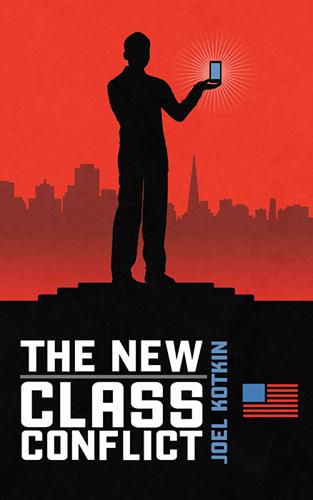
The New Class Conflict
by
Joel Kotkin
Published 31 Aug 2014
Lachlan Markay, “The Venture Corporatists,” Federalist, http://thefederalist.com/2013/10/02/the-venture-corporatists. 27. James Freeman, “How Washington Really Redistributes Income,” Wall Street Journal, October 21, 2012. 28. Encyclopaedia Britannica Online, s.v. “Silicon Valley” (by Michael Aaron Dennis), http://www.britannica.com/EBchecked/topic/544409/Silicon-Valley; Adrian Wooldridge, “The Coming Tech-lash,” Economist, November 18, 2013. 29. G. William Domhoff, Fat Cats and Democrats: The Role of the Big Rich in the Party of the Common Man (Englewood Cliffs, NJ: Prentice Hall, 1972), pp. 16, 35–73. 30. Ferdinand Lundberg, The Rich and the Super-Rich: A Study in the Power of Money Today (New York: Bantam, 1968), pp. 105–12; David Shribman, “The Democratic Coalition Is Breaking Up: More Blue-Collar Workers Identify as Republicans,” Pittsburgh Post-Gazette, January 22, 2012; John Dunbar, “Top 10 Donors Make up a Third of Donations to Super PACs,” The Center for Public Integrity, http://www.publicintegrity.org/2012/04/26/8753/top-10-donors-make-third-donations-super-pacs. 31.
…
Jessica Guynn, “Silicon Valley Staff-Poaching Suit Is Granted Class-Action Status,” Los Angeles Times, October 25, 2013; Dean Baker, “Silicon Valley Billionaires Believe in the Free Market, as Long as They Benefit,” Guardian, February 3, 2014; David Streitfeld, “Engineers Allege Hiring Collusion in Silicon Valley,” New York Times, February 28, 2014; Angela Moscaritolo, “Suit Reveals Alleged Silicon Valley Anti-Poaching Scheme,” PCMag, January 30, 2012, http://www.pcmag.com/article2/0,2817,2399555,00.asp. 66. Wooldridge, “The Coming Tech-lash”; PricewaterhouseCoopers LLP, “PwC’s M&A Outlook Reveals Dealmakers’ Increasing Focus on Quality Execution in Competitive M&A Market,” press release, July 23, 2013, http://www.pwc.com/us/en/press-releases/2013/2013-deals-mid-year-ma-forecast-press-release.jhtml; Chris Morran, “Google Settles With FTC, Agrees To Change Anticompetitive Business Practices,” Consumerist, January 3, 2013, http://consumerist.com/2013/01/03/google-settles-with-ftc-agrees-to-change-anticompetitive-business-practices; Alisa Melekhina, “Are Social Media Sites Engaging in Anti-Competitive Conduct?”
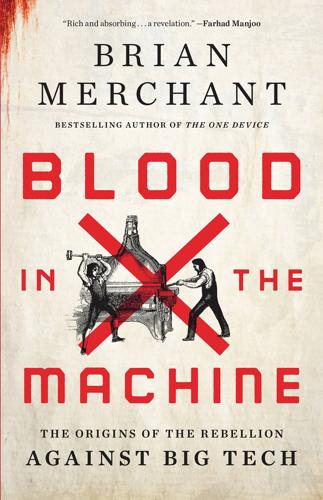
Blood in the Machine: The Origins of the Rebellion Against Big Tech
by
Brian Merchant
Published 25 Sep 2023
It’s fertile ground for Luddism, if inadequate in its current remit, the hosts think. “It wasn’t long ago since tech was covered breathlessly,” Sadowski said, “but Silicon Valley has co-opted the techlash—” “But the apocalyptic language remains,” Ongweso chimed in. “The recommendations are ass, like, ‘We should have a government watchdog.’ If you think this is a threat to human life and democracy, then what is a watchdog going to do?” “Luddism is more like the techlash that we need, and the techlash that people were hoping for and wanted,” Sadowski said. “Not for a nicer Silicon Valley. No, Silicon Valley is rotten to the core. The problem is structural.
…
“There is this straight line that can be drawn from Luddites to organizing around gig labor—and that is, both [groups of] people are being exploited, pushed on by capital, and sold as progress—if you get crunched up in the gears of progress, well, that’s the price of it!” They contend that the so-called techlash—the backlash against major tech companies that cropped up in the wake of Facebook’s Cambridge Analytica scandal, growing concerns over Google and Amazon’s monopoly power, and so on—demonstrates a deep-seated anger at the domination of Big Tech, but that it has already been co-opted by the industry. Techlash was shortlisted for Oxford English Dictionary’s 2018 word of the year. It was defined by the OED as “a strong and widespread negative reaction to the growing power and influence of large technology companies, particularly those based in Silicon Valley.”
…
The science-fiction author Cory Doctorow Cory Doctorow, “Science Fiction Is a Luddite Literature,” Locus, January 3, 2022; also mentioned in a post on Medium, November 15, 2021, https://doctorow.medium.com/science-fiction-is-a-luddite-literature-e454bf5a5076. 3. The tech worker and author Wendy Liu, Abolish Silicon Valley: How to Liberate Technology from Capitalism (London: Repeater, 2020). 4. Techlash was shortlisted “Word of the Year 2018: Shortlist,” Oxford Languages, https://languages.oup.com/word-of-the-year/2018-shortlist/. As of 2023, the OED Online defines techlash as: “Originally: opposition to digital or computer technology. In later use: spec. a strong and widespread negative reaction to the far-reaching power and influence of large technology companies, esp. in relation to their control of personal data, social media, regulation of online access and content, etc.” 5.
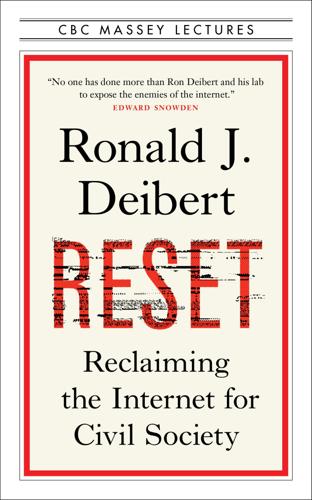
Reset
by
Ronald J. Deibert
Published 14 Aug 2020
Rethinking the black public sphere: An alternative vocabulary for multiple public spheres. Communication Theory, 12(4), 446–468. “The shares of America’s five biggest technology firms have been on an astonishing bull run”: Economist. (2020, February 21). So much for the techlash? Retrieved from https://www.economist.com/graphic-detail/2020/02/21/so-much-for-the-techlash Facebook’s stock jumped close to 2 percent: Jee, C. (2019, July 15). Facebook is actually worth more thanks to news of the FTC’s $5 billion fine. Retrieved from https://www.technologyreview.com/2019/07/15/134196/facebook-is-actually-richer-thanks-to-news-of-the-ftcs-5-billion-fine/ Facebook’s $5.7 billion investment in India’s Jio: Pham, S. (2020, May 7).
…
In combination, they can feel profoundly overwhelming, like a tectonic force that cannot be reversed. In part, that is why these truths are “painful.” Examining each of their pathologies completely and unreservedly, understanding and appreciating their scope and scale, can leave one feeling exhausted and resigned. Perhaps that is why social media continue to grow in popularity in spite of the “techlash.” Perhaps this explains why so many of us choose to remain in a state of blissful ignorance, never untethered for too long from our precious devices. But, as with the challenges of the climate crisis, fateful resignation to social media’s disorders will only invite looming disaster. While the personal, social, political, and ecological implications of social media are profoundly disturbing, not doing anything to mitigate them will be far worse.
…
It won’t be something that we can fix with a single policy, let alone a newfangled app. What we are experiencing, collectively, is a function of a linked set of deeply entrenched and mutually supportive social forces. Untangling these will be exceedingly difficult — a topic we’ll address in more detail in the final chapter. * * * In 2018, a new term circulated widely: “techlash” — not only a growing irritation with social media’s ill effects but a major pushback against the entire roster of technology platforms. Let’s face it: people are fed up with social media. Just about everyone has some kind of complaint, not just about the applications or the platforms, but also about the billionaire executives who run it all, people like Facebook’s Mark Zuckerberg or Twitter’s Jack Dorsey.
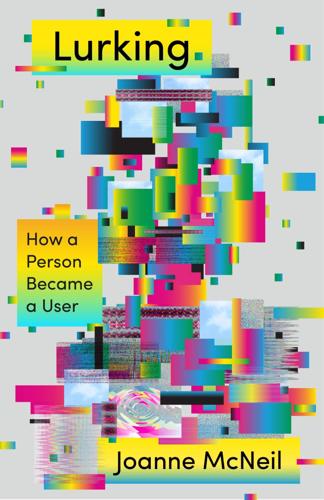
Lurking: How a Person Became a User
by
Joanne McNeil
Published 25 Feb 2020
The word “community” is used to describe Facebook employees, Facebook customers, and Facebook users, and therefore “assigns responsibility to everybody.” Facebook values do not scale. It colonizes, but it does not homogenize. What it calls a “global community” is global user gridlock. Following Trump’s election, when Facebook’s influence came into question, a consonant but mistaken narrative began to take shape in the media. This was a “techlash,” journalists explained. According to this narrative, users were once very happy to share their lives on Facebook. The company was believed to be a net positive and a social good before election night of 2016, and only in recent years have users felt betrayed by the platform—believing it to be harmful to themselves as individuals, and harmful to society.
…
Tech reporters act like Facebook’s “Loyal Opposition,” as the writer and academic M. R. Sauter has put it: bantering over its problems, expecting it will always be there, attempting to lock horns—while they are ants in proportion to its size. After all, who benefits when the story is that the crisis of Facebook is a new one? This problem is not a “techlash,” as new-tech journalists and tech pundits positioned it. The “tech beat” scarcely existed four years ago, although Facebook and other poisonous platforms had cursed beginnings in the aughts. The legacy media analogue to virality—a news peg, an angle, decisions over what is newsworthy—is a factor in how commercial platforms gobbled up so many industries, including the very same news business that largely ignored Silicon Valley’s ascent.
…
I fear that the media’s delayed—and often misplaced—concerns about technology has fostered an endless ping-pong of surface changes and tactics, rather than focus on structural changes like decommodification and decentralization to enact a better internet. Worse still, Silicon Valley—handed this truncated timeline of its ills—is already working to co-opt and neutralize the “techlash,” similar to how it weakly responded to the matter of diversity just a few years before. Calls for “ethics” are coming from inside the big tech houses, and with an agenda that favors optics over solutions. When tech executives appoint themselves as the stewards of the industry cleanup, they carry on with the same spirit of contempt for outsiders—and users—that unleashed the problems in the first place.

Amazon Unbound: Jeff Bezos and the Invention of a Global Empire
by
Brad Stone
Published 10 May 2021
Maud Daudon, the former CEO of the Seattle Metropolitan Chamber of Commerce, said that Seattle was “inevitably caught a bit flat-footed as a community” by Amazon’s rise. “It was just so transformational.” The same dynamic was playing out eight hundred miles south in Silicon Valley, where the recoil from longtime residents to the changes wrought by companies like Google and Facebook came to be known colloquially as the “techlash.” In Seattle, it was very specifically an “Amazonlash.” Absorbed with the mechanics of its relentless growth, Amazon executives and employees were easy to vilify. Unlike its older peers Microsoft and Boeing, the company donated almost nothing to local philanthropies like the county chapter of the United Way, and didn’t even match the charitable contributions of its workers.
…
Bezos and other Amazon executives saw only a city council captured by leftist legislators hostile to business. They didn’t seem to recognize or care that shifting public sentiment in Seattle also represented something broader: resistance to tech companies and to the dizzying changes they were bringing to their communities. That was the so-called techlash, unfolding outside the visible spectrum of Amazon’s well-compensated senior leadership. Their failure to recognize these forces was about to have serious repercussions. In addition to identifying Bellevue as an immediate alternative for headcount growth, some Amazon executives concluded that HQ2 would now have to be bigger than previously planned and most likely ramp up faster than initially expected.
…
“It’s not personal, it’s kind of what we as a society want to have happen.” He sounded almost resigned toward whatever outcome might result: “We are so inventive that whatever regulations are promulgated or however it works, that will not stop us from serving customers.” In private though, Bezos prepared to take a less accommodating approach toward the intensifying techlash. In the fall of 2019, the S-team and Amazon’s board of directors read The Great A&P and the Struggle for Small Business in America, by the economic historian Marc Levinson. The book traces the rise and fall of the first American grocery chain of the twentieth century, as well as its strategic drift after the death of its founders and the decades-long crusade against it by populist politicians and determined trustbusters.

Empire of AI: Dreams and Nightmares in Sam Altman's OpenAI
by
Karen Hao
Published 19 May 2025
But OpenAI had been clever with its positioning: It straddled the border between the techno-chauvinist version of Silicon Valley and a more conscientious strand that was emerging. Over the following year, Donald Trump’s spectacular rise and win in the 2016 US presidential election would shock the left-leaning workforce of the tech industry into self-reflection. As upheaval ripped through companies like Meta and Google and techlash sentiment gripped the public, AI researchers, too, began to question whether the field had moved too quickly to yoke its technologies to corporate bottom lines. An accounting of the societal impacts of commercializing AI research returned an unsettling scorecard: Automated software being sold to the police, mortgage brokers, and credit lenders were entrenching racial, gender, and class discrimination.
…
See DeepMind DNNresearch, 47, 50, 98–99, 100 Frontier Model Forum, 305–6, 309 GPT-4 and, 249 Imagen model, 240, 242 LaMDA, 153, 253–54 neural networks, 100–101 Project Maven, 52 speech recognition, 100 Sutskever and, 50, 100–101 techlash, 51 Transformers, 120–22, 158–59, 160, 165–66, 169, 171–73, 235 valuation, 70 Waymo, 100 Google Brain, 72, 159, 162, 166, 167 Google I/O, 379, 380, 383 Google Research, 53, 158, 163 Google Translate, 100, 121–22, 197, 410 Gordon-Levitt, Joseph, 323 government regulations.
…
R., 135 Mathenge, Richard, 416 Mayer, Katie, 150 Mayo office, 74, 316, 434n McCarthy, John, 89–90, 92, 400 McCauley, Tasha, 321–24, 375 Altman’s firing, 7, 11 Altman’s leadership behavior, 324, 352, 357, 359–60, 361–62 McGrew, Bob, 69, 156, 236–37, 244, 373, 404, 405–6 Mechanical Turk (MTurk), 194–95, 202–3 Meena, 153 megacampuses, 275–76, 283–84 mega-hyperscale, 276 Mejias, Ulises A., 104 meritocracy, 36 Messerschmidt, Neily, 334–35 Meta, 51 AI investments, 105 compute, 305 content moderation, 190, 192, 209 data centers, 274–75, 281, 285 Llama, 305 OpenAI and, 159, 406–7 open-source, 304–5 techlash, 51 Threads, 260 Metz, Cade, 80, 90 Metz, Luke, 247, 406 Miceli, Milagros, 414–15 Michelangelo, 81 Microsoft Altman and, 355–56 firing, 4, 6, 9, 10, 13, 367 Azure AI, 68, 72, 75, 156, 266, 279 Bing, 112, 113, 247, 264, 355 Copilot, 238–39, 247–48, 264 data centers, 256, 274–75, 277, 278–81, 285, 287, 296–99 Frontier Model Forum, 305–6, 309 GitHub, 135–36, 182–84, 237, 243, 336 Helion Energy, 187, 280 Inflection AI, 320, 384–85 market capitalization, 18, 80, 84, 293 Max Altman at, 36 ResNet, 309–10 speech recognition, 100 Tay, 153 Microsoft Office, 264 Microsoft, OpenAI partnership, 18, 67–68, 71–72, 234, 264–67, 269–70, 402 ChatGPT, 264, 265–66 compute phases, 278–81 GPT-3, 156, 278–79 GPT-4, 245–48, 279, 324 investments and funding, 13, 17, 72, 75, 80–81, 84–85, 132–33, 143, 145, 156, 248, 331 Microsoft Research, 68 Microsoft Teams, 264 Mighty AI, 195 military, 52, 304, 380 Millicent, 220–23 Minsky, Marvin, 95, 96–97 Mishra, Nikhil, 58, 254 misinformation, 51–52, 179, 241, 377 Mission District, 57, 73–74 MIT (Massachusetts Institute of Technology), 6, 46, 88, 95, 106, 121, 231, 420–21 Mitchell, Margaret “Meg,” 162, 164, 166, 169, 254 MIT Technology Review, 75, 86–87, 126, 169, 186, 370 model weights, 148, 149, 150, 156, 248, 266, 305–9 Moeroa, Raiha, 411 Mohamed, Shakir, 104 monopolies, 39–40, 101, 142, 182, 303 Montgomery, Christina, 307–8 moonshots, 48–49, 51 Moore, Gordon, 60 Moore’s Law, 60–61, 116 Morton, Samuel, 91 MOSACAT, 288–92, 294, 297, 300, 417 Moskovitz, Dustin, 230 Mozilla Foundation, 102, 413 multimodal models, 92–93, 158, 175, 176, 234–35, 237, 246, 375 Mundie, Craig, 68 Murati, Mira, 343–51 Altman and, 244, 345–51, 355–56, 362, 392–93 firing and reinstatement, 1–5, 9–10, 364–73 interim CEO, 1–2, 8, 357, 364–65, 366 leadership behavior, 345–51, 362, 363–64 background of, 69, 343–44 chief technology officer, 343, 345–46 DALL-E and, 241 departure of, 404, 405–6 hiring of, 69, 344 Johansson and equity crises, 392–93 Microsoft and, 182, 184, 270 Omnicrisis, 396–98 Scallion, 381 Superalignment, 387 at Tesla, 69, 344, 362 Toner and, 348–51, 355–56 VP of Applied, 150, 344–45 Murphy, Cillian, 317 Musk, Elon Altman and, 23–24, 26–28, 62–63, 64–66, 147, 316–17, 382 firing, 368–70, 372, 375 leadership behavior, 362, 368 congressional testimony of, 311 departure from OpenAI, 64–66 founding of OpenAI, 12–13, 26–28, 47, 49–51, 53–54 funding, 61–62, 63–64, 66–68 governance structure of OpenAI, 13–14, 61–63 Manhattan Project, 316–17 MIT Technology Review story and, 86 Neuralink, 63, 73, 147, 320 Page and, 24, 25–26, 51 Radford and, 122 risks of AI, 23–27 SpaceX, 23–24, 25, 28, 50, 368 xAI, 321, 322, 397, 403, 404–5 Zilis and, 320–21, 324–25 Zuckerberg and, 406–7 Mutemi, Mercy, 212, 291 N Nadella, Satya, 113 Altman’s firing, 4, 6, 10, 367 congressional testimony of, 311 GPT-4, 247–48, 346 OpenAI partnership, 67–68, 71, 72, 248, 265, 270 Nairobi, Kenya, 190–91, 193, 207, 208, 212, 219, 416 Napoleon Bonaparte, 399–400 National Highway Traffic Safety Administration, 107–8 Nectome, 186–87 Nepal, 206 Nest, 134–35, 144–44, 150, 151, 156, 244–45 Netflix, 59, 70 “network effects,” 39, 40, 187 Neural Architecture Search, 160, 171, 173 Neuralink, 63, 73, 147, 320 neural networks, 95, 97, 98–101 hallucinations, 113–14, 217, 268, 358 limitations and risks, 106–10, 112–15 NeurIPS (Neural Information Processing Systems), 418 Climate Change AI, 77 Gebru and racism, 52–53, 161–62 OpenAI at, 50, 154, 259, 374 Test of Time Award, 259, 374 neurosymbolic AI, 109–10, 116 New Enterprise Associates, 32 Newsom, Gavin, 311 New York (magazine), 326–27, 328–29, 332–33, 336–40, 343, 352 New Yorker, The, 25, 26–27, 31, 57 New York Times, The, 80, 90, 95, 112, 115, 143, 221, 244, 264, 270, 272, 302, 313, 368, 371, 384, 400–401, 403 New York University, 105, 109, 235 New Zealand, 409–13 next-word prediction, 122, 124, 130 Nkosi, Thami, 104 Noah, Trevor, 11 Noble, Safiya Umoja, 162 noise pollution, 275 nondisparagement agreements, 389–90 North Africa, 205–6 North Korea, 146 nuclear fusion, 141, 186, 187, 280 nuclear-powered submarines, 144 Nvidia, 61–62, 278, 304, 412 A100s, 175–76, 236, 242 B100s, 279–80 H100s, 279 V100s, 133, 175 O Obama, Barack, 25, 43, 154, 207 Odysseus, 279 Okinyi, Albert, 209, 211–12 Okinyi, Cynthia, 208, 209, 210–11 Okinyi, Mophat, 193, 207, 211–12, 291, 415–17 Olin College of Engineering, 121, 411 Olson, Parmy, 18 Ommer, Björn, 236 Omni, 380, 381 Omnicrisis, 390–92, 395–98, 400, 401, 403, 404 “On the Dangers of Stochastic Parrots” (Bender), 164–73, 254, 276, 414 OpenAI.
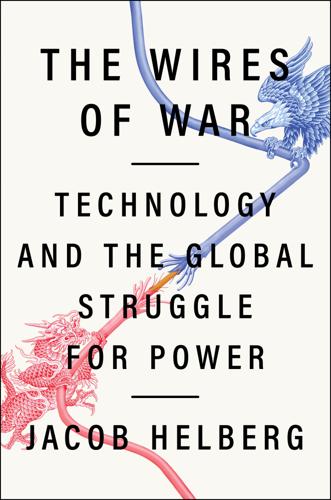
The Wires of War: Technology and the Global Struggle for Power
by
Jacob Helberg
Published 11 Oct 2021
Faced with autocratic adversaries who commandeer homegrown companies for their governments’ own ends, the mutual antipathy between coasts—between the American platforms on which the Gray War is being fought and the U.S. government and military officials fighting that war—has opened a gaping hole in our national defense. China has civil-military fusion. The United States has techgovernment confusion. And while our two coasts battle each other, the authoritarians are taking aim at democracy. Techlash Hard as it may be to imagine today, the marriage was once a happy one. Historian Margaret O’Mara calls the U.S. government “the Valley’s first, and perhaps its greatest, venture capitalist.”9 During World War II, the University of California at Berkeley was the second-largest recipient of funding from the Office of Scientific Research and Development.
…
Another claims, “We’re making the world a better place through Paxos algorithms for consensus protocols.”32 Watching the show with my husband, Keith, we’d sometimes exchange knowing glances about which real-life CEO or industry mishap was being parodied. As the predominant media narrative fell out of love with tech, so did the country’s elected representatives. By 2016, the Hill and the Valley confronted what celebrity breakups typically term “irreconcilable differences.” America entered a full-fledged techlash. Democrats were furious that Moscow had manipulated social media to facilitate Donald Trump’s election—and even angrier that the industry seemed so blasé about it all. Civil rights groups blasted social media platforms for discrimination in advertising and hiring, and for allowing ugly, allegedly racist comments to proliferate.
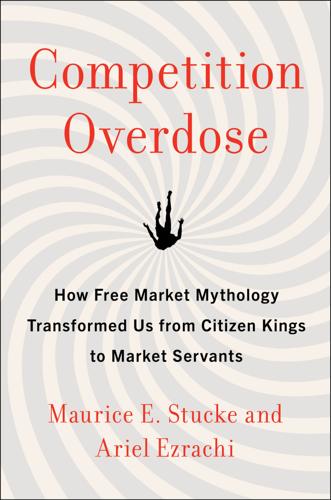
Competition Overdose: How Free Market Mythology Transformed Us From Citizen Kings to Market Servants
by
Maurice E. Stucke
and
Ariel Ezrachi
Published 14 May 2020
Griffiths, “Social Networking Sites and Addiction: Ten Lessons Learned,” International Journal of Environmental Research and Public Health 14, no. 3 (March 2017): 311; https://doi.org/10.3390/ijerph14030311. 25.Gustavo Ferreira da Veiga et al., “Emerging Adults and Facebook Use: The Validation of the Bergen Facebook Addiction Scale (BFAS),” International Journal of Mental Health and Addiction 17, no. 2 (November 2018): 279, https://doi.org/10.1007/s11469-018-0018-2; Julia Brailovskaia and Jürgen Margraf, “Facebook Addiction Disorder (FAD) among German Students—a Longitudinal Approach,” PLoS One 12, no. 12 (December 2017), https://doi.org/10.1371/journal.pone.0189719 (noting how Facebook use is very attractive for narcissists and could make them especially vulnerable to Facebook addiction disorder). 26.Cecilie Schou Andreassen and Stale Pallesen, “Social Network Site Addiction—An Overview,” Current Pharmaceutical Design 20, no. 25 (2014): 4053–61, https://doi.org/10.2174/13816128113199990616; see also Brailovskaia and Margraf, “Facebook Addiction Disorder” (defining Facebook addiction disorder through six typical characteristics of addiction disorders: “salience (e.g., permanent thinking of Facebook use), tolerance (e.g., requiring increasing time on Facebook to achieve previous positive using effect), mood modification (e.g., mood improvement by Facebook use), relapse (e.g., reverting to earlier use pattern after ineffective attempts to reduce Facebook use), withdrawal symptoms (e.g., becoming nervous without possibility to use Facebook), and conflict (e.g., interpersonal problems caused by intensive Facebook use)”. 27.For the impact of smartphones on children, see Jean M. Twenge, iGen: Why Today’s Super-Connected Kids Are Growing Up Less Rebellious, More Tolerant, Less Happy—and Completely Unprepared for Adulthood (New York: Atria Books, 2017). 28.Eve Smith, “The Techlash against Amazon, Facebook and Google—and What They Can Do,” Economist, January 20, 2018, https://www.economist.com/briefing/2018/01/20/the-techlash-against-amazon-facebook-and-google-and-what-they-can-do. 29.Haley Sweetland Edwards, “The Masters of Mind Control,” Time, April 23, 2018, 30–37, https://www.scribd.com/article/376290832/The-Masters-of-Mind-Control. 30.Tristan Harris, “How Technology Hijacks People’s Minds—from a Magician and Google’s Design Ethicist,” May 19, 2016, http://www.tristanharris.com/essays/; Edwards, “The Masters of Mind Control.” 31.Edwards, “The Masters of Mind Control.” 32.Jonas Abromaitis, interview with Startup Lithuania, October 18, 2016, https://www.startuplithuania.com/news/tiny-lab-productions-subscription-model-sounds-promising/ (Tiny Lab CEO noting the difficulty to maintain the children’s “attention and encourage their loyalty to our games”). 33.Google, “Rewarded Ads: A Win for Users, Developers, and Advertisers,” accessed April 30, 2019, https://admob.google.com/home/resources/rewarded-ads-win-for-everyone/. 34.ACCC Preliminary Report, 4. 35.Betsy Morris, “The New Tech Avengers,” Wall Street Journal, June 29, 2018, https://www.wsj.com/articles/the-new-tech-avengers-1530285064; Levi Sumagaysay, “Former Google, Facebook Employees Step Up Battle against Tech Addiction,” Mercury News (San Jose), February 5, 2018, http://bayareane.ws/2EIqLTB; Nellie Bowles, “Early Facebook and Google Employees Form Coalition to Fight What They Built,” New York Times, February 4, 2018, https://nyti.ms/2GJoKHg; Tia Ghose, “What Facebook Addiction Looks Like in the Brain,” Live Science, January 27, 2015, https://www.livescience.com/49585-facebook-addiction-viewed-brain.html. 36.NM AG Complaint ¶¶ 150–60 (identifying Google among the software development kit defendants). 37.NM AG Complaint ¶ 153. 38.NM AG Complaint ¶ 151, citing 60 Minutes, Brain Hacking, April 9, 2017, https://youtu.be/awAMTQZmvPE; Nicholas Kardaras, Glow Kids: How Screen Addiction Is Hijacking Our Kids—and How to Break the Trance (New York: St.
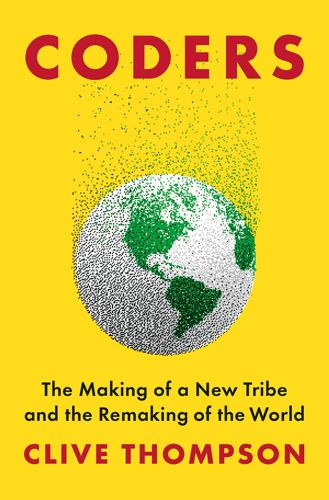
Coders: The Making of a New Tribe and the Remaking of the World
by
Clive Thompson
Published 26 Mar 2019
He launched Block Together just before Gamergate broke open, and the tool became popular among the women being targeted. Innovative engineering, it seems, could indeed help mitigate the problems that Twitter, Facebook, and YouTube had stumbled into. The social networks just needed to make it a priority. By the middle of 2018, the bloom was off the rose. The big social networks had been stung by a “techlash” of public criticism. Their top executives had all been dragged into Congress and berated over how Russian actors had used their systems to meddle in the 2016 election. The scandal over Cambridge Analytica had broken open, showing how the firm had scraped and used personal info on millions of Facebook users to target political ads.
…
“I can report things that say, like, you fucking cunt, and it doesn’t get banned,” said the historian Marie Hicks. It would not be surprising if the human moderators, which Twitter pays to adjudicate reported tweets, are overwhelmed. The same goes for Facebook and for Google. Those companies also responded to the techlash by announcing they were hiring ever more human moderators, whose job it would be to examine reported posts, pictures, and videos. It was a lot of moderators: Facebook promised to hire 10,000 by the end of 2018, and Google in 2017 said it was hiring 10,000 to scour YouTube videos. These moderator jobs are among the most terrible, thankless occupations in cyberspace.

Abolish Silicon Valley: How to Liberate Technology From Capitalism
by
Wendy Liu
Published 22 Mar 2020
Soon after arriving in London, I attended an academic conference on artificial intelligence that I had heard about through social media. I was mostly here to observe; it had been ages since I last went to one of these conferences and I kind of missed it. Plus, maybe I would find some answers to the questions that had been nagging me of late. It was July 2017, and the techlash was burgeoning; ordinary people were worried about AI coming for their jobs and unscrupulous tech companies misusing their data. The European Union had recently adopted a wide-ranging privacy regulation called the General Data Protection Regulation (GDPR), and companies had less than a year left to enact it.
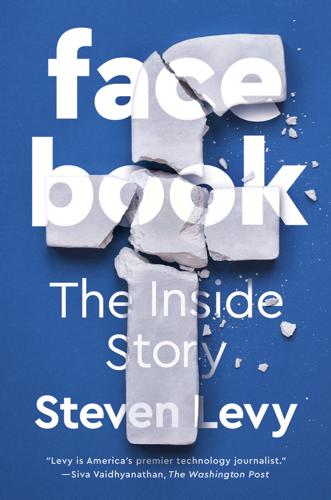
Facebook: The Inside Story
by
Steven Levy
Published 25 Feb 2020
Basically, Cook didn’t seem to trust Zuckerberg as a partner, and didn’t go out of his way to hide it. Complicating matters was the dramatic pivot of the press and government, and to some degree the public, against the giant tech companies that suddenly seemed to dominate everyday life. Insiders referred to it as the “Techlash.” Of the West Coast behemoths being lashed against, Facebook was the biggest source of scorn and concern, with Zuckerberg seen as the guy who helped lose the halo that once hovered over the tech world. Just as leaders of great national powers would summit despite their hostilities, Zuckerberg and Cook would generally set aside time to talk at the annual Herb Allen summer gathering.
…
third-party app, 160 Super Wall third-party app, 160 Swisher, Kara, 185, 271 Swope, Allison, 440 Synapse-ai, 33, 38–41, 44, 47, 58 Systrom, Kevin and advertising on Instagram, 508 background of, 299–300 and control asserted by Zuckerberg, 509–10, 512, 513 departure of, 491, 512, 513 and Dorsey, 302, 303, 304–5 and FB’s acquisition of Instagram, 305, 325 FB’s attempt to recruit, 106–7 on independence of Instagram, 489–91 and Instagram TV, 510 and messaging service, 509 and origins of Instagram, 300–303 and social media critics, 473 and Stories feature, 497–99 and success of Instagram, 304 Tayler, Alexander, 419 Taylor, Bret, 203, 205, 284, 286 Techlash, 482 Terms of Service agreements, 265, 369, 407, 414 terrorist content, 455 Thiel, Peter and car for Zuckerberg, 97 on FB’s board of directors, 102, 133, 288 and growth of FB, 94 party thrown by, 95, 275 and RapLeaf (data broker), 269 “seed round” funding from, 88–89, 90, 100, 101, 178 on shares and vesting schedule, 96 and Trump campaign, 494 and Yahoo!’
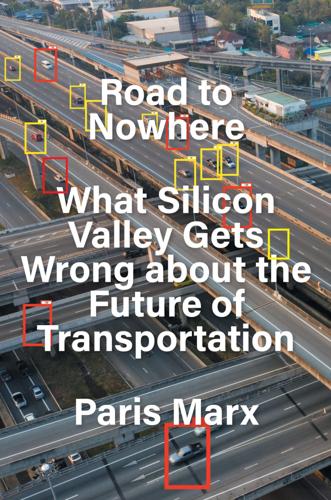
Road to Nowhere: What Silicon Valley Gets Wrong About the Future of Transportation
by
Paris Marx
Published 4 Jul 2022
Many of the journalists covering the tech beat failed to dig into the histories of the industries that companies were claiming to disrupt, and did not do their due diligence on whether they were really doing what they claimed. Instead, there was an incentive to break new stories quickly, get in the good graces of the industry’s ascendent firms and founders, and to believe the claims they were making.6 Years later, even after a series of scandals among major tech firms kicked off a “techlash” that forced the mainstream press to adopt a slightly more critical perspective on the industry and its claims, companies like Uber could still get away with misrepresenting their earnings and even financial journalists would uncritically repeat them. The media’s representations of Uber and the wider gig economy served to mislead the public, politicians, and regulators about what effects they might have on society.

Enshittification: Why Everything Suddenly Got Worse and What to Do About It
by
Cory Doctorow
Published 6 Oct 2025
When Trump bellowed his support for US tech giants at Davos, it doubtless lifted the spirits of those in Google’s C-suite, who are currently facing a breakup after losing an antitrust case brought by Biden’s DOJ. But Trump’s DOJ told the judge that they agree with the Biden DOJ’s proposed punishments for the monopoly that Google was convicted of establishing and maintaining. All of this is pretty grim. The backlash to the techlash has been swift and demoralizing. At times like this, it’s important to remember where the antitrust revolution came from. The brilliant public officials who prosecuted that revolution under Biden were the effect, not the cause. Like I said, there’s no billionaire dark-money organization that backed antitrust.
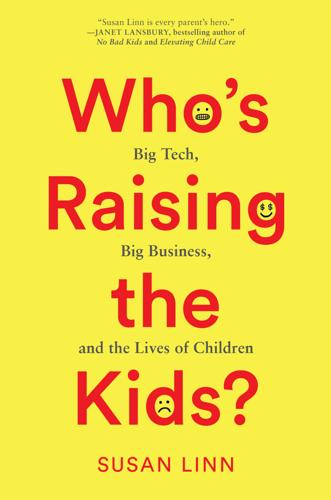
Who’s Raising the Kids?: Big Tech, Big Business, and the Lives of Children
by
Susan Linn
Published 12 Sep 2022
“LEGO Teams Up with Cary’s Epic Games to Help Build a Kid-Safe Virtual World | WRAL TechWire,” April 7, 2022, wraltechwire.com/2022/04/07/lego-teams-up-with-carys-epic-games-to-help-build-a-kid-safe-virtual-world. 4. Fairplay, “Designing_for_disorder.Pdf,” April, 2022, fairplayforkids .org/wp-content/uploads/2022/04/designing_for_disorder.pdf. 5. Emma Goldberg, “‘Techlash’ Hits College Campuses,” New York Times, January 11, 2020. 6. Colleen Mcclain, “How Parents’ Views of Their Kids’ Screen Time, Social Media Use Changed During COVID-19,” Pew Research Center (blog), www.pewresearch.org/fact-tank/2022/04/28/how-parents-views-of-their-kids-screen-time-social-media-use-changed-during-covid-19.
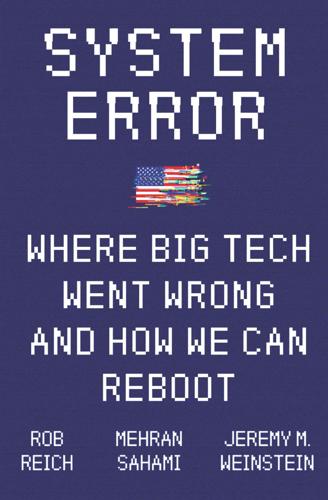
System Error: Where Big Tech Went Wrong and How We Can Reboot
by
Rob Reich
,
Mehran Sahami
and
Jeremy M. Weinstein
Published 6 Sep 2021
In short, our professional and personal lives, our economy and intimate relationships, and even our health would have been far worse without the internet and our familiar addictive devices. As we exit the COVID-19 pandemic and enter a new political moment, the window is finally opening for a mature consideration of technology, one that avoids both the technoboosterism that accompanied its early decades and the “techlash” that has followed. Sure, there remain plenty of criticisms to be made of Facebook, the privacy policies of Zoom, the acceleration of automation in an age of smart machines without regard for job displacement, and the toxic misinformation and disinformation flowing through social media platforms.

Human Frontiers: The Future of Big Ideas in an Age of Small Thinking
by
Michael Bhaskar
Published 2 Nov 2021
Not only were they spending, but there was also a sense that these were the last organisations, with their labs and moonshots, willing to tackle grand challenges with a can-do mindset and fresh thinking; the last hopes for Bell Labs 2.0. Now tech faces significant (and arguably self-inflicted) obstacles: accused of violating social norms, monopolising sectors and fomenting a series of populisms, companies face a ‘techlash’, both among users and in the regulatory capitals of Washington and Brussels. Outsourcing radical innovation and thinking to a handful of West Coast businesses with lots of money was always unwise – and yet it is the unthinking strategy for much of the Western world. If economic conditions warp the ecosystem of innovation, social pressures have a similar impact on the ecosystem of abstract ideas.
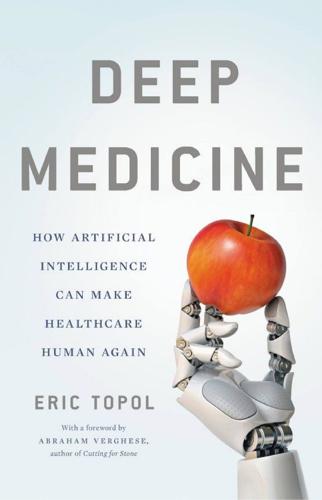
Deep Medicine: How Artificial Intelligence Can Make Healthcare Human Again
by
Eric Topol
Published 1 Jan 2019
In the past, the process would have taken up to four hours.”51 The head of England’s Understanding Patient Data, Nicole Perrin, was quite supportive of the project: “I think it is very important that we don’t get so hung up on the concerns and the risks that we miss some of the potential opportunities of having a company with such amazing expertise and resources wanting to be involved in health care.”52 Joe Ledsam of DeepMind AI’s team added his perspective: “We should be more mindful of the risks and safety of models, not less.” The DeepMind case study brings out so many relevant medical privacy issues of Big Data: not obtaining proper consent, not being transparent, and the “techlash” that we’ll see more and more with the oligopoly of big tech titans (Google, Amazon, Apple, Facebook, Microsoft) now all fully committed to healthcare. Even though it resulted in an important product that helped clinicians and patients, there were valuable lessons learned.53 One other example of deep learning’s potential to invade privacy is an effort described in a paper in the Proceedings of the National Academy of Sciences.54 By combining 50 million Google Street View images of 22 million cars, in two hundred cities, with publicly available data, researchers at Stanford University’s AI lab and their collaborators were able to accurately estimate public voting patterns, race, education, and income by zip code or precinct.
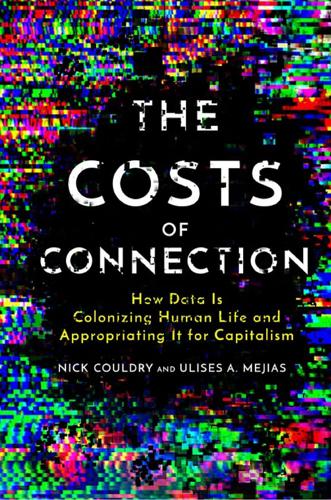
The Costs of Connection: How Data Is Colonizing Human Life and Appropriating It for Capitalism
by
Nick Couldry
and
Ulises A. Mejias
Published 19 Aug 2019
It was as though a side deal by Facebook with independent data prospectors had accidentally left open a hole in the ground that allowed the general public, for the first time, to see clearly into an underground anteroom. There, in that anteroom, visible for all to see, was the entrance to social media’s real data mine, although few understood exactly what lay behind that subterranean door in Facebook’s exclusive domain, let alone the planetary scope of capitalism’s data mining. The long-anticipated “techlash” had begun but, as yet, without a map of the wider pattern of exploitation, whose traces had suddenly become visible. The concept of data colonialism helps us draw that map. In this chapter, we unpack further what this term involves and outline its relation to capitalism and to the new social order that is stabilizing in and through capitalism.
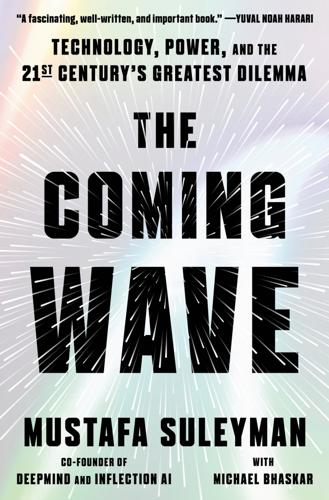
The Coming Wave: Technology, Power, and the Twenty-First Century's Greatest Dilemma
by
Mustafa Suleyman
Published 4 Sep 2023
I should know, I was stuck in it for too long. In the years since we founded DeepMind and since those presentations, the discourse has changed—to some extent. The job automation debate has been rehearsed countless times. A global pandemic showcased both the risks and the potency of synthetic biology. A “techlash” of sorts emerged, with critics railing against tech and tech companies in op-eds and books, in the regulatory capitals of Washington, Brussels, and Beijing. Previously niche fears around technology exploded into the mainstream, public skepticism of technology increased, and criticisms from academia, civil society, and politics sharpened.
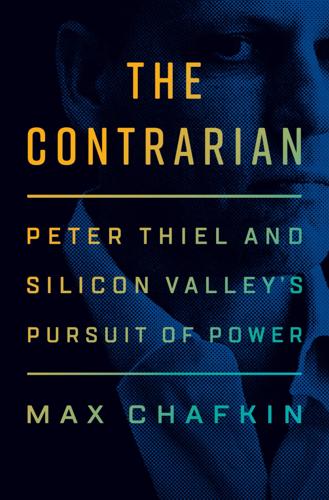
The Contrarian: Peter Thiel and Silicon Valley's Pursuit of Power
by
Max Chafkin
Published 14 Sep 2021
Amazon sales—on everything from cloth bandanas to 1,000-piece jigsaw puzzles—spiked so dramatically that the company had to triage its shipping times. Companies scrambled to sign up for Slack, and we joked about having “finished” Netflix. Online social networks might be a proxy for a real social life, but suddenly they were all we had. “The techlash is over,” Srinivasan gloated on Twitter. The tech surge was a financial phenomenon as well as a cultural one. After dropping precipitously following the lockdowns in March, the S&P 500 index recovered and was actually up for the year by July. Almost all of those gains were due to the handful of big tech companies that now dominated the index.

Nothing Personal: My Secret Life in the Dating App Inferno
by
Nancy Jo Sales
Published 17 May 2021
He was my friend and I loved him; but, being a man, he couldn’t really know what it was like to be a woman on a dating app—or what it was like to be me, having been cyberbullied by one of the biggest dating sites in the world. The guys at Tinder weren’t used to encountering criticism when my story on dating apps came out in 2015. Ever since Tinder had launched, three years before, the media had been publishing glowing reports of how the wonder boys of Tinder were “revolutionizing dating.” This was a few years before “techlash” had set in, with people finally questioning the notion that tech was an unmitigated good. It was before the Cambridge Analytica scandal of 2018 showed how a social media platform, Facebook, could sway an election and threaten democracy; before Google faced worldwide protests from its employees, in 2018, over its handling of sexual harassment cases; before some of the heads of Big Tech appeared before Congress via videoconference in 2020 and were grilled about everything from antitrust issues to hate speech on their sites.
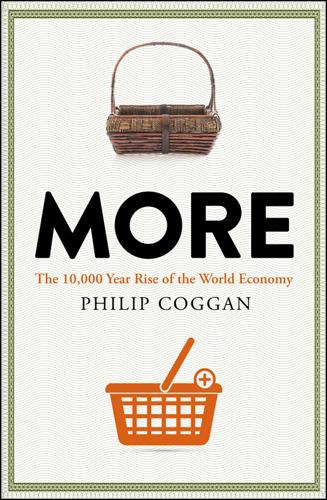
More: The 10,000-Year Rise of the World Economy
by
Philip Coggan
Published 6 Feb 2020
A rival service would face an enormous task to catch up. Google, meanwhile, has become synonymous with “internet search” and thus can make money by selling advertised links. And Amazon’s sheer scale means that it can undercut rival retailers, on price and on delivery. However, the monopoly power that these companies have attained has caused a “techlash”. People have started to worry about the Faustian bargain involved in giving personal information to corporate giants; as the saying goes, if you are being given a free service, that is because you are the product. Inevitably, the internet has been used to promote offensive views and hateful threats, and the tech companies have been accused of doing too little to prevent this.

Your Computer Is on Fire
by
Thomas S. Mullaney
,
Benjamin Peters
,
Mar Hicks
and
Kavita Philip
Published 9 Mar 2021
Techno-optimist narratives surrounding high technology and the public good—ones that assume technology is somehow inherently progressive—rely on historical fictions and blind spots that tend to overlook how large technological systems perpetuate structures of dominance and power already in place.9 As the United States finds itself in the midst of a “techlash” or backlash against high tech’s broken promises, the history of computing offers us a chance to reflect critically on the roots of these developments and the potential dangers that lie ahead. Because Silicon Valley seems to be pointing the way to our national and even global future, it is difficult to critique it and to imagine alternatives.

Four Battlegrounds
by
Paul Scharre
Published 18 Jan 2023
The U.S. government, by contrast, has taken a more laissez-faire approach to regulating technology, allowing the growth of “surveillance capitalism” in which big tech companies collect and store massive amounts of personal data. (Although political winds in Washington are starting to shift with a growing “techlash” against big tech firms.) China represents the starkest difference, with the Chinese Communist Party building an intrusive and expansive techno-authoritarian surveillance apparatus, which is imperfect and fragmented for now but will become increasingly capable over time. Yet China’s data advantage, which has been espoused both by proponents of China’s AI development and those who fear it, is overstated.